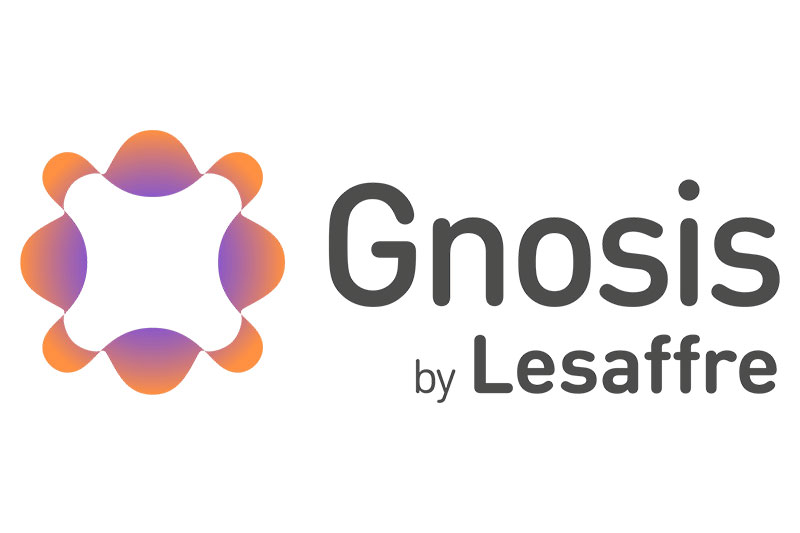Gnosis by Lesaffre is eager to share that Kidney International Reports has published a new study using MenaQ7 Vitamin K2 as MK-7 that explored the relationship between vitamin K2 menaquinone-7 (MK-7) supplementation on coronary artery calcification progression in 138 kidney dialysis patients.
The study concluded that 360 µg of MK-7 thrice weekly for 18 months was not enough to provide statistically significant improvement in slowing vascular calcification progression in this population.
It has been established that individuals on haemodialysis have impaired function of matrix GLA protein (MGP), a powerful vitamin K-dependent inhibitor of vascular calcification.
MK-7 activates MGP and increased activated MGP helps protect arteries from calcification.

The researchers hypothesised that oral menaquinone-7 (MK-7) would enhance the carboxylation of MGP, reduce levels of undercarboxylated (inactive) MGP and therefore reduce coronary artery calcification (CAC) in the hemodialysis (HD) population.
The kidney population participating in the Treatment to Reduce Vascular Calcification in Hemodialysis Patients Using Vitamin K (TReVasc-HDK) study, a single-centre, prospective, open-label interventional clinical trial on HD patients at the National University Hospital, Singapore, represented a multiethnic Asian population with an extremely low extrahepatic K status represented by high dp-ucMGP, inactive form of MGP.
They were randomised to vitamin K2 supplementation or standard care between July 2016 and February 2019.
After 18 months, the researchers found that there was no statistical difference between the supplementation group and placebo group in CAC scores, although K2 supplementation was found to reduce undercarboxylated MGP.
The researchers concluded: “TReVasc-HDK does not suggest a beneficial effect of oral vitamin K2 supplementation in attenuating VC or arterial stiffness at a dose of 360 µg 3x/week despite a significant reduction in dp-ucMGP."
"Our findings are consistent with three priors smaller RCTs on vitamin K supplementation which reported progression of VC in HD patients.”
They added that there may be a possibility that K2 supplementation at higher doses or provided earlier in the development of vascular calcification may provide a quantifiable benefit in this population.
Further, many other factors might contribute to the initiation and progression of VC via non-vitamin K-dependent mechanisms.
“This study found that vitamin K2 supplementation did not attenuate vascular calcification or arterial stiffness at a dose of 360 µg three times per week, which strongly suggests that kidney patients on dialysis would need higher doses to achieve protection benefit against arterial calcification,” says Sophie Legrain-Raspaud, Gnosis Research & Application Director.
Although the dose of 360 µg of vitamin K2 as MK7 three times a week was able to produce a 20% reduction in dpucMGP in this trial, the dose was too low to optimally improve extrahepatic K status.
Two previous studies of MenaQ7 in kidney patients yielded some promising data. Kurnatowska, et al., published the first clinical trial in kidney patients in 2015, which yielded positive results with just 90 µg daily combined with 10 µg of vitamin D3.
Mansour, et al., showed an improvement in arterial elasticity in kidney transplant patients with 360 µg/daily in 2017. These outcomes were repeated by others in 2022.
“There is a clear need for the optimisation of vitamin K status in kidney patients, and this study is critically important in helping to understand what doses will ultimately work to provide protective cardiovascular benefits to individuals on hemodialysis,” adds Legrain-Raspaud.
“In the progress of researching an ingredient, some studies will not find a conclusive benefit owing to any number of reasons. This knowledge gained helps guide future trials that could yield the hypothesized results, particularly once a beneficial dose range is pinpointed.”
Other K2 research has yielded many important insights since this study was initiated in 2016. To that end, other MenaQ7 trials have considered higher dosages, such as the VIKIPEDIA trial in Greece, which will study the effects using the highest dosage to date: 1 mg MK-7 daily.
Further, outside of the optimisation of extrahepatic K status, VIKIPEDIA will optimise vitamin D, vitamin K2 and magnesium levels – three nutrients known to support vascular health.
“Although the present study findings might be characterised as unsuccessful, it should not hinder enthusiasm to proceed forward as this is integral to a sound exploratory scientific method,” adds Marc Philouze, Gnosis by Lesaffre General Manager.
“Rather, the insights gained help design future trials to answer clinically highly relevant questions. The pursuit of scientific knowledge and discovery is not always so straightforward.”

